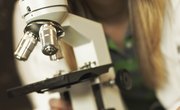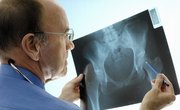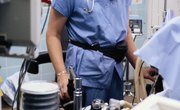Orthopedic surgeons had average earnings greater than $166,000 per year with expected job growth of 24 percent -- much faster than average -- according to the U.S. Bureau of Labor Statistics. The process to become an orthopedic surgeon isn't an easy one, though, and requires four years of college, four years of medical school and five years of graduate medical training. Your college degree can be your first step toward this demanding career, and the right college classes will help you meet your medical school prerequisites.
Pre-Medicine
A pre-medicine major ensures you meet typical requirements for acceptance to medical school. It may also help you decide if the rigors of medicine are right for you, and it will provide you with a group of peers who are interested in medicine. You'll take courses such as organic chemistry, general chemistry, biology, physics and English. You might also take classes such as cellular biology, psychology, developmental biology and biochemistry.
Science Majors
Orthopedic surgeons, like all physicians, have to have a strong grasp of basic scientific principles. You can't make good decisions about how to fix a broken leg if you don't understand physics, and chemistry is a necessity for making appropriate medication suggestions. Consider a major in biology, chemistry or physics. You'll take numerous lab classes related to your major but will need to ensure your degree program meets your medical school's prerequisite requirements.
Sports Medicine
Orthopedic surgeons frequently work within the field of sports medicine by helping athletes recover from serious injuries. A sports medicine major can give you a window into the world of orthopedics and help you understand how the muscles and bones of the human body work together. You'll take courses in anatomy, physiology, calculus, biology, physics, exercise science and the biomechanics of human movement. Your classes for a sports medicine degree will often neatly track medical school prerequisites.
Social Sciences
While medicine places a strong emphasis on biology and physiology, you can't neglect emotional well-being when you're dealing with human beings. Try taking classes in the social sciences to fulfill your elective requirements. For example, an introductory psychology class can help you understand how people process medical information and how to communicate more effectively. A sociology class could help you gain a better grasp on the social factors that contribute to disease.
Related Articles
References
Writer Bio
Van Thompson is an attorney and writer. A former martial arts instructor, he holds bachelor's degrees in music and computer science from Westchester University, and a juris doctor from Georgia State University. He is the recipient of numerous writing awards, including a 2009 CALI Legal Writing Award.










